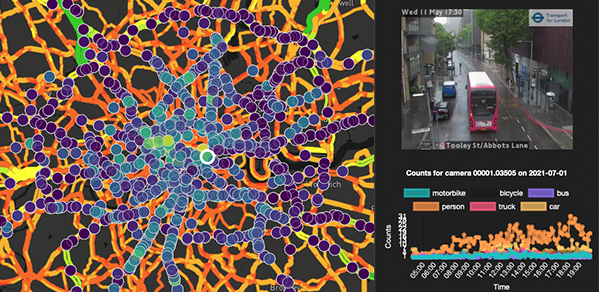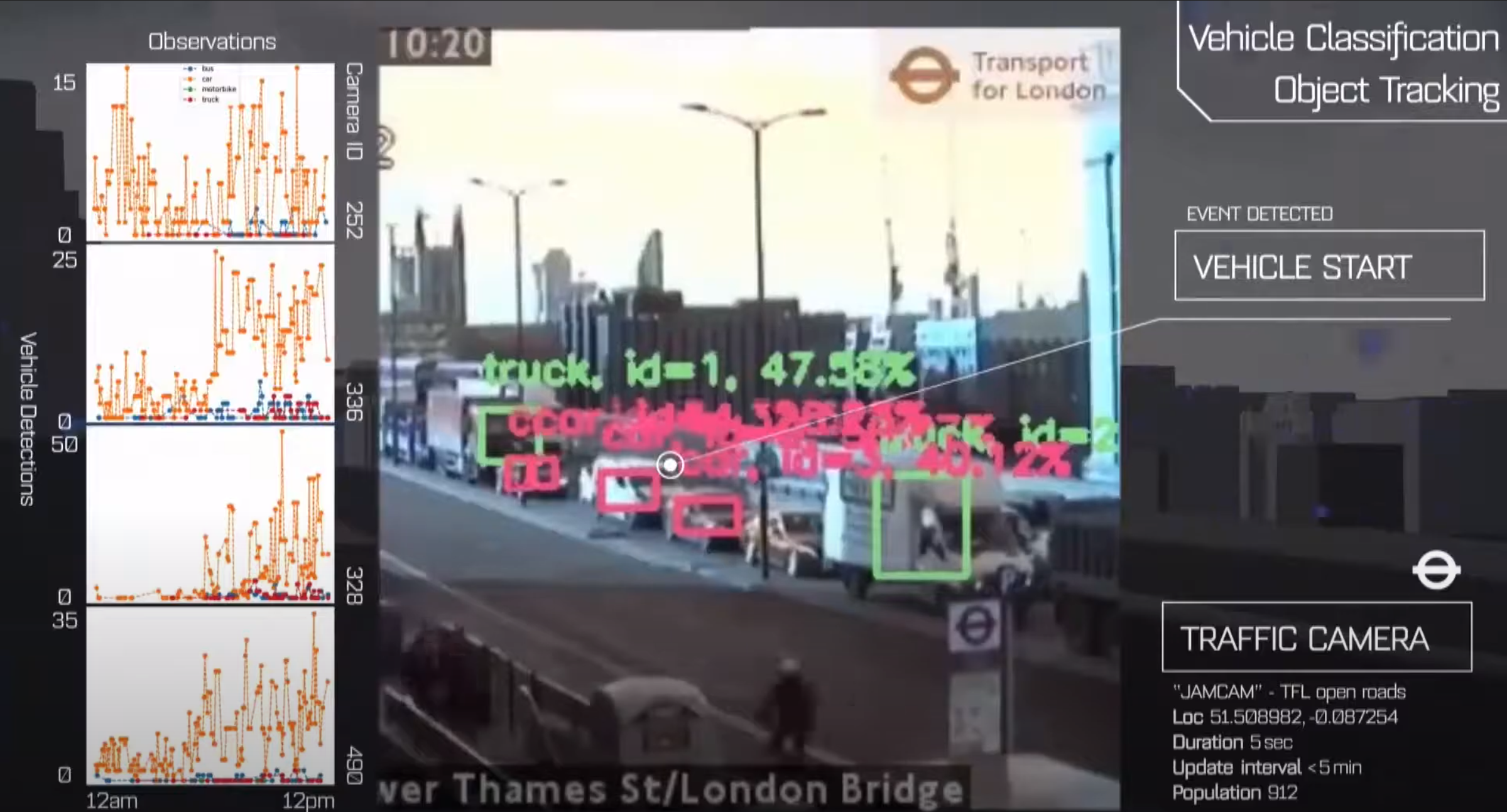
Researchers behind the development and deployment of an AI vision-based monitoring tool – used to track social distancing decisions in London during the COVID-19 pandemic – have accepted the Wilkes Award 2024 for “best paper” published in The Computer Journal.
Leading a national research effort in supporting TfL during the pandemic lockdowns, and the safe emergence from them, was a significant effort by a large and diverse team, so I am delighted that this work is to be recognised with the Wilkes Award.
Professor Mark Girolami
The Project Odysseus research team from the Universities of Cambridge and Warwick and The Alan Turing Institute, delivered the tool to the Greater London Authority (GLA) and Transport for London (TfL), providing near real-time data of social distancing adherence on the streets of the capital. This ran over an 18-month period, including during the first two lockdowns in 2020, and the third lockdown in 2021.
The tool – driven by Digital Twins (realistic digital representations of physical assets), computing and data infrastructure, as well as state-of-the-art machine learning algorithms – helped to inform policy decision-making such as the effectiveness of the two-metre COVID-19 rule, and quickly identified where street spacing interventions were needed. These interventions included moving bus stops, widening pavements, and closing parking bays to enable social distancing.
Each year, The Computer Journal’s deputy editors shortlist the best paper published in the previous volume of the journal based on criteria including:
- Technical quality
- Knowledge of field
- Rigour of arguments
- Originality
- Clarity of presentation
- Standard of English
- References to other work.
The winning paper titled Near real-time social distance estimation in London is free to access until June 9, 2025.
Co-first author of the paper Professor Mark Girolami was joined on the project by Cambridge Engineering alumni Andrew Wang and Mihai Ilas (Christ’s College), who were undergraduates at the time. Both had secured internships supporting TfL in assessing social distancing compliance during the various lockdowns.
“Leading a national research effort in supporting Transport for London during the pandemic lockdowns, and the safe emergence from them, was a significant effort by a large and diverse team, so I am delighted to be informed that this work is to be recognised with the Wilkes Award,” said Professor Girolami, Chief Scientist at The Alan Turing Institute and Sir Kirby Laing Professor of Civil Engineering at Cambridge, where he holds the RAEng Research Chair in Data-Centric Engineering. He is also the Academic Director for the Cambridge Centre for Smart Infrastructure and Construction (CSIC).
Also involved in the project were PhD students Yannis Zachos and James Walsh from the EPSRC Centre for Doctoral Training in Future Infrastructure and Built Environment: Resilience in a Changing World (FIBE2).
James said: “I am thrilled that we have been honoured with this award. As a result of airport closures during the pandemic, I found myself trapped for months, more than 5,000 miles away from London. Working on Project Odysseus, which involved me labelling street furniture via satellite imagery to calibrate more than 900 traffic cameras, was a large component of how I processed the pandemic, what with me being so far away from home. The success and positive impact of this project is an even greater reward and is owed to the resourcefulness of the team, leadership of our research group, and partnership with the Greater London Authority.”
Project Odysseus followed an earlier project on the monitoring of air quality in London using machine learning algorithms and data science. The team were able to repurpose this research to monitor vehicle and pedestrian activity on London’s streets during the COVID-19 pandemic.
“Project Odysseus would not have been possible without all of the prior infrastructure that the team had built for the air quality project,” added James. “The way in which the team pivoted their research efforts from measuring air quality to monitoring human activity on the streets, shows how a flexible and agile response was made to a national crisis, repurposing research in the process.”

Vehicle detections over London Bridge. Credit: London Air Quality team.

Detection intensity per class (capture from the air quality monitoring project). Credit: Project Odysseus team.

